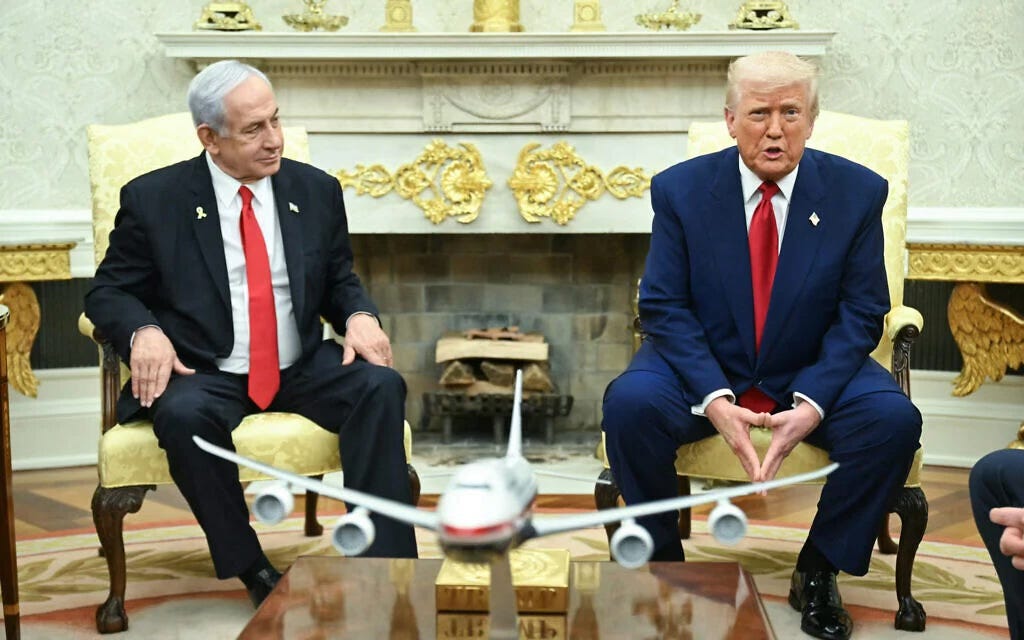What to Make of the Trump–Netanyahu Spectacle on Erdoğan
Trump’s theatrics may thrill Ankara’s loyalists, but they complicate Erdoğan’s already fragile balancing act in Syria. What looked like a win could just as easily fuel regional suspicions.
Pro-AKP trolls, masquerading as journalists in what we still generously call newspapers were euphoric after the latest Oval Office spectacle, where Trump, seated next to Netanyahu, seemed to pull a pseudo- ‘one minute’ moment. Turning toward the Israeli prime minister, he urged him to be “reasonable” regarding Turkey’s role in Syria. Almost like an Erdogan of 2009 objecting Shimon Peres at Davos. Unlike, those headlines in pro-government media arguing an historic win for Erdogan against Netanyahu, I doubt that more serious foreign policy advisers in Ankara are as amused by this theatre.
And not just any theatre—this was a production starring three of the most cunning tricksters of our time. Two in the room. One as the topic of the moment. To analyze this meeting through the usual IR or foreign policy frameworks wo…



